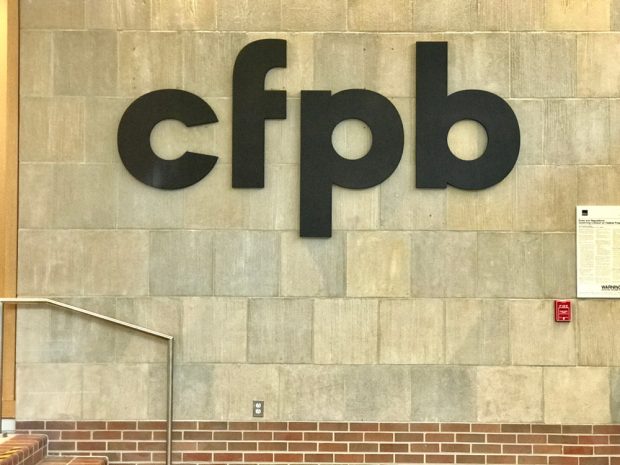 CFPB headquarters. (Source: Shutterstock)
CFPB headquarters. (Source: Shutterstock)
The ranking Democrat on the Senate Banking Committee is blasting CFPB Kathy Kraninger's decision to support a delay in the repayment sections of the agency's controversial payday lending rule.
"As the Bureau argued in court filings, there is no legal basis to delay the scheduled August 19, 2019, compliance date," Sen. Sherrod Brown (D-Ohio.) wrote in a letter to Kraninger.
Recommended For You
The repayment part of the controversial rule governs the ability of payday lenders to withdraw money from a borrower's bank account to repay the loan.
A federal judge in Texas has agreed to a request by the agency and the Community Financial Services Association of America, the payday lender trade group, to extend his stay on enforcement of the repayment and other parts of the rule.
The association filed suit challenging the entire payday lending rule, saying that the CFPB's rulemaking process was flawed..
The CFPB already has delayed the part of the rule that would require a lender to ensure that borrowers had an ability to repay their loan before the loan is approved. The payday lending rule was adopted during the Obama Administration; the Trump Administration has consistently expressed reservations about the regulation.
Brown said that the CFPB has not initiated new rulemaking regarding the part of the rule governing how and when lenders may withdraw funds from borrowers' bank accounts, and in fact, had stated that there was no reason to delay that part of the rule.
And he charged that the agency has consistently sided with the payday lending industry.
"The Payday Rule that the Bureau issued on October 5, 2017, would have provided substantial and much needed protections to consumers from predatory payday lenders," Brown wrote. "But just three months after finalizing the Payday Rule, the Bureau—under then Acting Director Mick Mulvaney—sided with industry and began efforts to repeal the Rule."
In a letter to Brown, Kraninger said the agency generally does not comment on pending litigation and refers the senator to the agency's court filings in support of the delay.
In those court documents, the CFPB said that the CFSA has a substantial chance of winning its lawsuit challenging the entire payday rule.
On the other side of Capitol Hill, House Financial Services Chairwoman Maxine Waters (D-Calif.) and 100 other House members sent a letter last week to Kraninger outlining their opposition to any proposal that would change the other part of the rule—the ability-to-repay section.
"Contrary to recklessly false characterizations, payday, car-title, and predatory consumer installment loans made without regard to the borrower's ability to repay are not acceptable or sustainable sources of credit," they wrote. "Payday and car-title lenders have the leverage to seize hundreds if not thousands more than the original cost of the loan and have control over the borrower's bank account and/or the ability to repossess the borrower's car."
© Touchpoint Markets, All Rights Reserved. Request academic re-use from www.copyright.com. All other uses, submit a request to [email protected]. For more inforrmation visit Asset & Logo Licensing.






